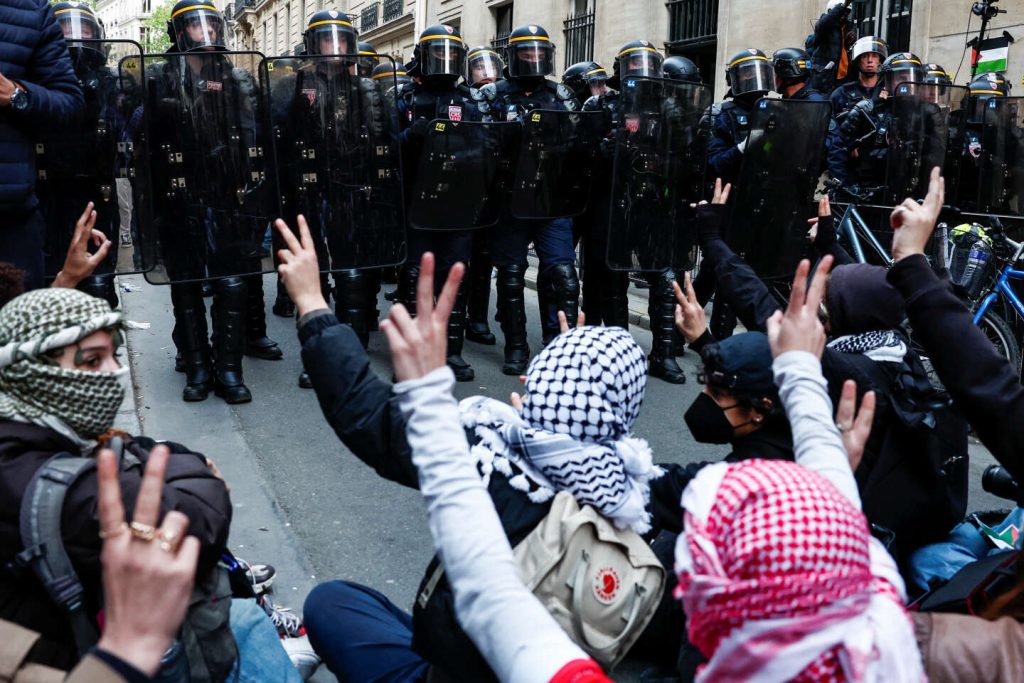The controversy at Sciences Po over the treatment of Palestinian students and the perceived bias towards Israeli victims began in the fall of 2023, long before the recent incident involving a Jewish student being denied access to a lecture hall. Many students involved in the Palestine solidarity movement at the prestigious French university point to a lack of support from the institution’s leadership, especially during the escalation of violence in Gaza. Issues such as a minute of silence being held for Israeli victims but not for Palestinians further fueled tensions among students, leading to growing discontent with the school’s handling of the situation. This discontent eventually erupted into a public scandal, with accusations of bias and indifference towards Palestinian voices.
The recent incident involving a Jewish student being accused of being a Zionist and denied access to a lecture hall by pro-Palestine students sparked a national conversation in France, with President Emmanuel Macron and Prime Minister Gabriel Attal both weighing in on the matter. The affair led to an internal investigation and a referral to the public prosecutor, highlighting the seriousness of the situation at Sciences Po. The university has been criticized for being too lenient towards anti-Semitism and for fostering a culture of “wokeness,” with the administration coming under fire for its handling of the issue.
The silence from the school’s leadership on Palestinian issues has been a major point of contention for many students involved in the Palestine solidarity movement. They feel that Sciences Po has shown a bias towards Israeli victims and has failed to provide support for Palestinian students during times of crisis. Despite efforts to address anti-Semitism and promote interfaith dialogue at the institution, the lack of attention to the situation in Gaza has been a sore point for many students, leading to calls for greater recognition of the Palestinian perspective and a more balanced approach to addressing conflicts in the Middle East.
The events at Sciences Po reflect broader divisions within French society over issues related to the Israeli-Palestinian conflict and the treatment of marginalized communities. The tension between different student groups on campus mirrors the ongoing debates in France about the role of universities in promoting diversity and inclusion, as well as the government’s foreign policy priorities. The controversy has also raised questions about the responsibilities of educational institutions in addressing sensitive political issues and ensuring a safe and respectful environment for all students, regardless of their background or beliefs.
The response from the school’s administration, including the resignation of former director Mathias Vicherat, has not fully resolved the underlying issues at Sciences Po. Students continue to demand a more inclusive and supportive environment for Palestinian students and a greater recognition of their concerns. The incident involving the Jewish student has highlighted the need for a frank discussion about anti-Semitism, anti-Zionism, and the broader issues of discrimination and bias that affect students from different backgrounds. The future of Sciences Po will depend on how it addresses these challenges and works towards creating a more inclusive and respectful community for all its students.


